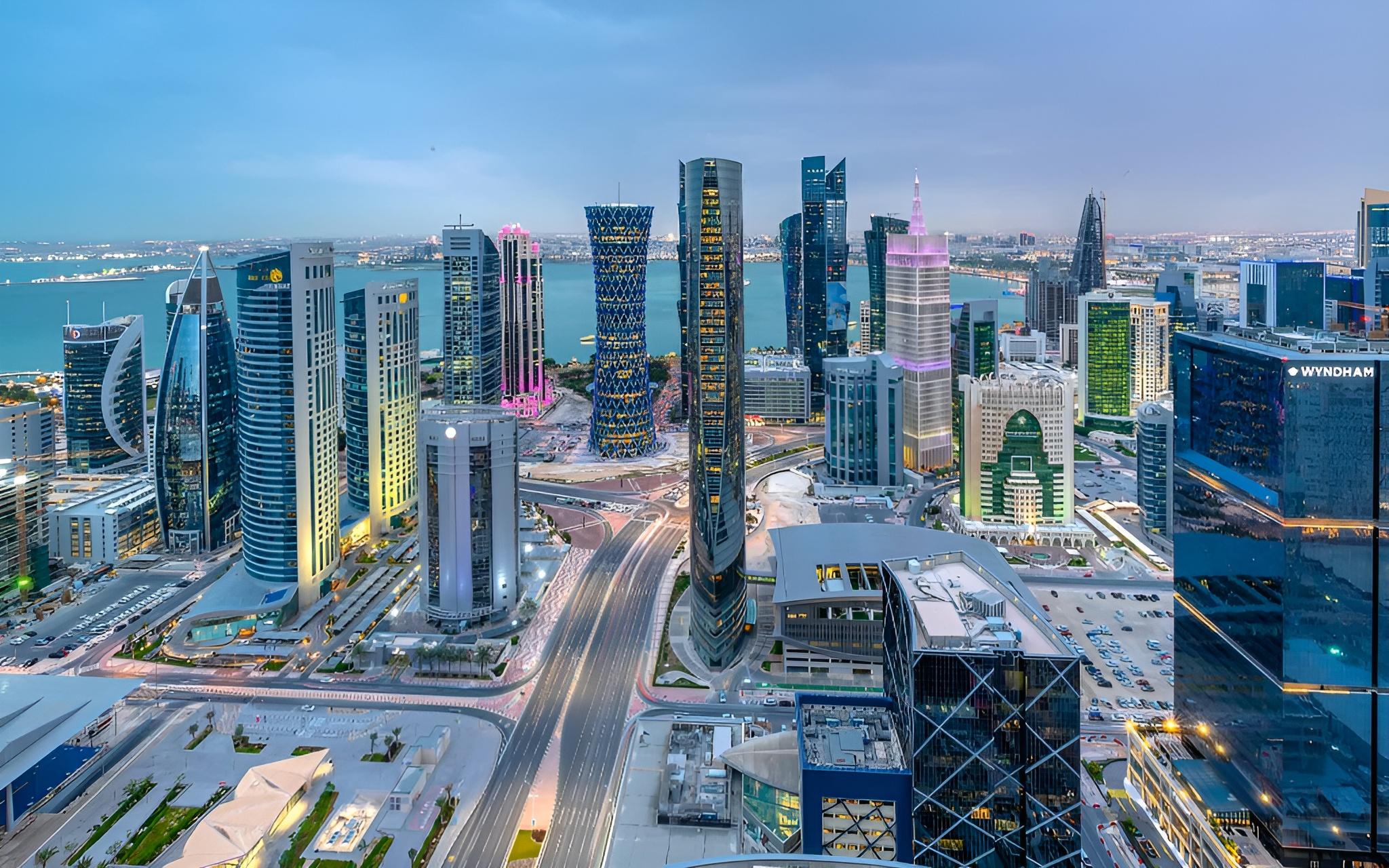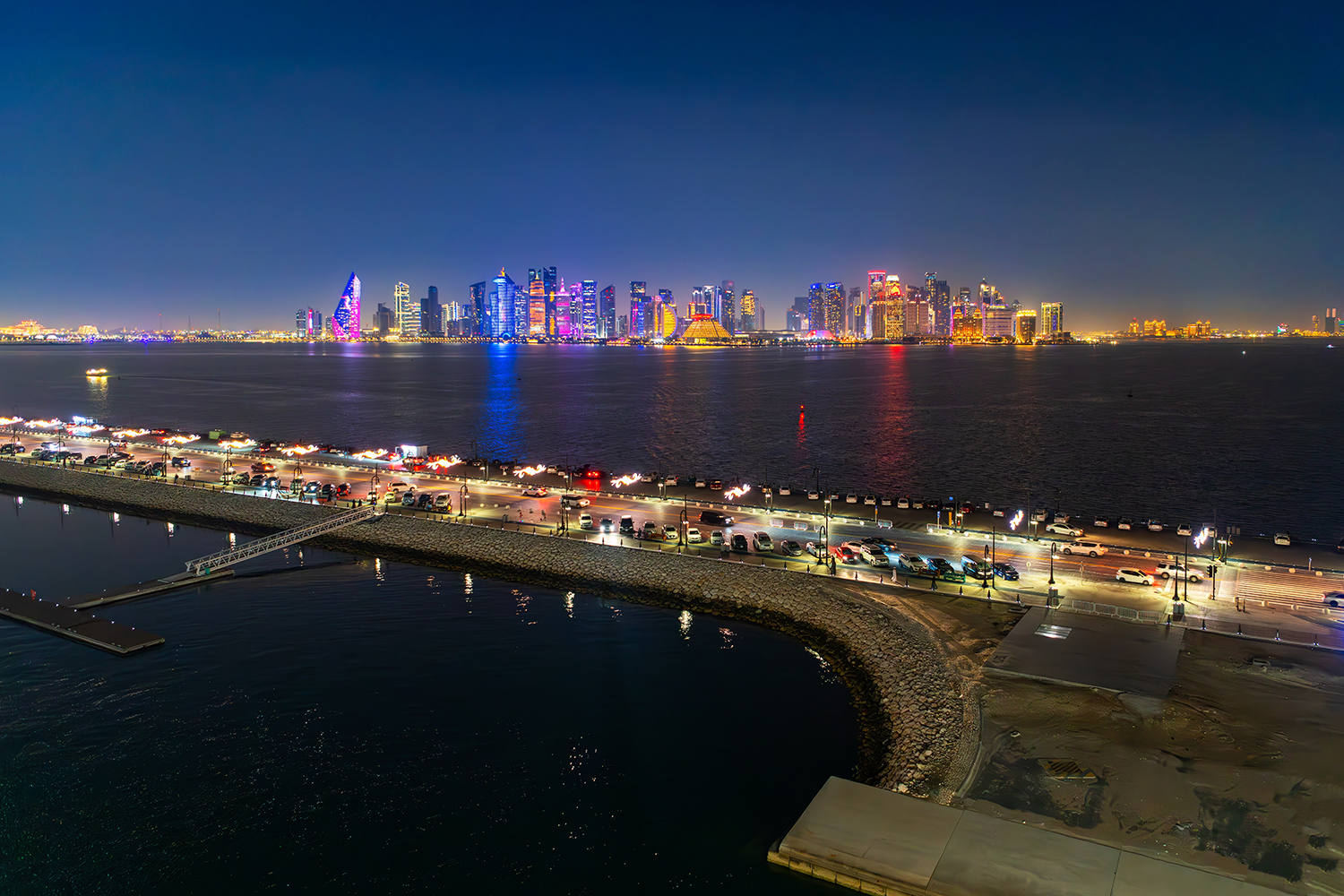Qatars Aspirational Journey to Lead as a Global Logistics Hub




Qatar's Journey Towards Becoming a Premier Logistics Hub
Qatar has set its sights on transforming into a major global logistics hub, a vision strongly supported by its strategic geographic location and ambitious infrastructure developments. The nation's logistics sector is poised for significant growth as part of the Qatar Vision 2030 and the Third National Development Strategy, with its freight and logistics market projected to soar from USD 9.5 billion in 2024 to USD 13.49 billion by 2030.
Central to this expansion is the enhancement of Qatar's key logistical infrastructures, including the eagerly watched expansions at Hamad Port and Hamad International Airport. These developments are complemented by new services and strategic incentives designed to attract crucial industries, forming the backbone of Qatar's burgeoning logistics capabilities. The facilities are set to increase capacities across various transportation modes—sea, road, rail, and air—while offering tailored incentives for strategic industries, making Qatar an appealing regional logistics hub.
The strategic vision incorporates ambitious regional integration projects that promise to enhance connectivity and facilitate smoother trade routes across the region. Among the noteworthy initiatives highlighted by industry reports is the planned rail link with Saudi Arabia, which will not only enhance connectivity but also facilitate smoother trade routes across the region. Moreover, the potential bridge to Bahrain stands as another central piece of Qatar's integration strategy, forging economic ties that enable seamless commerce and foster regional stability through interconnected economies.
In a fascinating industry collaboration, DHL initiated its first flight to Hamad International Airport in January 2024. This move aligns perfectly with Qatar's growing logistics ambitions, as DHL plans to expand to daily flights by the second quarter, according to Country Manager Ahmed Elfangary. The logistics landscape in Qatar is evolving with key partnerships that demonstrate global confidence in the nation's strategic position.
A notable highlight was the Memorandum of Understanding signed between Qatar Free Zones Authority and FedEx Logistics. This groundbreaking partnership aims to establish a state-of-the-art logistics facility in the Ras Bufontas Free Zone, aiding in the acceleration of global supply chains and underscoring Qatar's commitment to becoming a logistics powerhouse. These public-private partnerships are at the core of Qatar's push to transform its logistics infrastructure, ensuring the seamless transport of goods with increased efficiency.
Meanwhile, other firms like marine surveyor and loss adjustment entity CHM Global have actively capitalized on local opportunities, backed by immense support from Qatar's Ministry of Transport. The formation of local firms like Sea Horizon Marine Services signifies a trend towards internal diversification, with potential for Qatar to develop its own shipbuilding industry, inspired by similar ventures in regions like Abu Dhabi and Dubai Maritime City.
Pioneering digitalization plays a crucial role in streamlining operations and enhancing efficiency across the sector. In the dynamic realm of logistics, digitalization and innovation have emerged as pivotal forces propelling Qatar towards its goal of becoming a global logistics hub. This digital shift is revolutionizing traditional processes, simplifying operations, reducing paperwork, and expediting the movement of goods while driving down costs.
The introduction of systems like the "Green Lane" for expedited customs clearance reflects Qatar's pledge to embrace technology-driven solutions, enhancing the import and export processes. Under this innovative system, customers from low-risk countries can submit customs documents online, and if approved, shipments skip lengthy inspections, significantly speeding up the trading process. This technological advancement exemplifies how digitalization is providing a turbo boost to the logistics system, making operations faster and more reliable.
Data from Qatar's National Planning Council shows a promising trend with a notable rise in exports and handling capacities. In September 2024, cargo handling at major ports surged by 46%, reflecting the ongoing success of Qatar's logistics sector in meeting growing international trade demands. Qatar's ports—Hamad, Ruwais, and Doha—have witnessed this stunning leap in cargo handling, illustrating the enhanced efficiency brought on by innovation and strategic investments.
The results of these technological advancements and strategic partnerships are palpable across the sector. Qatar's National Planning Council revealed promising trade figures, with a notable increase in exports and imports in mid-2024, highlighting the growing capacity and efficiency of its logistics infrastructure. These performance indicators demonstrate the tangible benefits of Qatar's comprehensive approach to logistics development.
Continuing improvements and technological advancements underline the dynamic nature of the logistics industry, with Qatar setting a fascinating course to establish itself as a preeminent logistics hub and a gateway to international markets. The Qatari approach combines global aspirations with regional inclusivity, aligning infrastructure investments with strategic partnerships to position the nation not merely as a stopover for international goods but as a linchpin of regional trade networks.
As Qatar continues to bridge global aspirations with regional integration, these projects illustrate the nation's commitment to reinforcing its role as a conduit for economic activity in the Gulf region. The continuous development has seen Qatar's logistics sector expand not just in size but also in capabilities, promising streamlined logistics operations and a more integrated market landscape for businesses. Such improvements in digitalization and innovation are redefining how nations perceive and execute logistics operations worldwide, making Qatar a quintessential case study in harnessing technology for economic excellence.

Comments